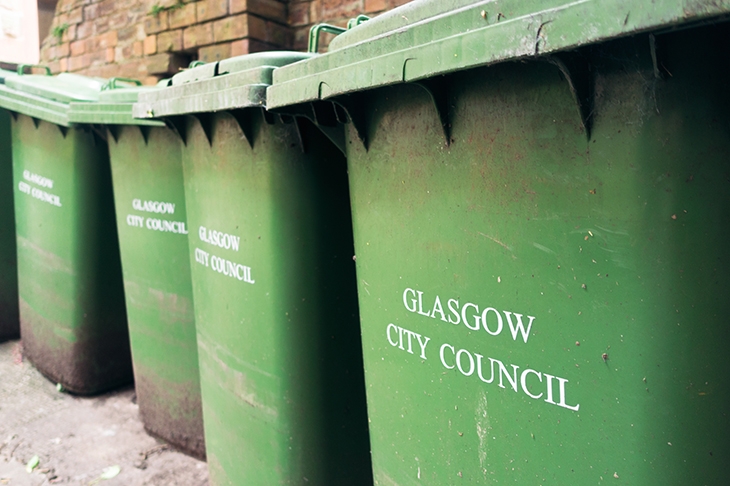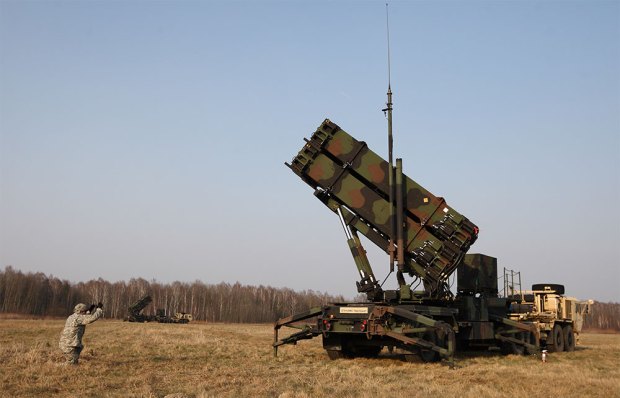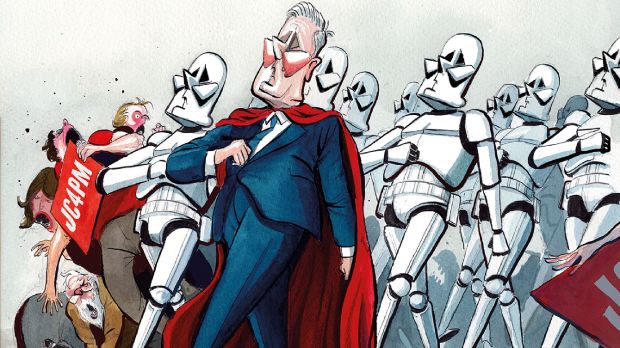In just a few weeks, Glasgow will be the focus of the world’s attention for the COP26 summit. For the Prime Minister, however, two major embarrassments await. Firstly, an environmental conference aimed at weaning the developed world off fossil fuels looks set to take place in the middle of a British energy crisis. Secondly, Glasgow — whose council is now run by the SNP for the first time — is a city in crisis where streets are overflowing with rubbish.
Pavements strewn with household waste are a common sight. Residents routinely post images on social media of the city centre and its outer-lying suburbs covered in detritus. Glasgow’s bin men are appalled and characterise the situation as a health and safety breach: they cite the risk of Weil’s disease, which can be transmitted to humans through rodent urine. So far this year four Glasgow bin men have been attacked by rats.
Collection rates, uplift charges and fly-tipping are all blamed for the waste scandal. In April, the SNP council completed the switch from bin collections every fortnight to every three weeks. Three months later, a £35 bulk uplift charge was introduced for large electricals or groups of up to ten other items. It is hardly surprising that fly-tipping has become more commonplace.
Glaswegians have given up waiting for the council to fix the problem and instead are getting stuck in themselves. Clean-up efforts have popped up throughout the city. There is a determination that Glasgow must not be seen looking ‘mockit’ on the international stage.
Residents are angry too. The focus is mostly on Susan Aitken, who after decades of one-party rule swept Labour out of power to become Glasgow council’s first Nationalist leader in 2017. In a car-crash TV interview last month, she said that the city just needed a ‘spruce up’, which was seized on by opponents as a staggering understatement and proof she is out of touch. When Sir Keir Starmer visited Glasgow in August he took part in a GMB union protest and called the cleansing crisis ‘a failure of leadership from the SNP council’. Aitken accused him of ‘a scapegoating and a targeting of Glasgow’ and even suggested the GMB was echoing the language of ‘far-right organisations’ that had blamed immigrants for previous waste problems in one part of the city.
Thomas Kerr, the Tory group leader on the council and a rising Conservative star in Scotland, represents the East End ward of Shettleston, which is among those worst affected. ‘We’ve become the fly-tipping capital of Britain and host the UK’s fourth-highest population of rats. That’s the legacy of Glasgow’s first Nationalist council,’ he says.
It is also the legacy of Scotland’s Nationalist government, which has cut Glasgow City Council’s budget by 11 per cent. Aitken won’t complain about Nicola Sturgeon’s administration, though, because there is effectively a mutually assured destruction pact between them. Sturgeon backs Aitken, despite plenty of evidence that she is not up to the job, and Aitken remains loyal to the boss even though Sturgeon’s cuts have helped precipitate the current crisis.
The SNP is a political party, but first and foremost it is a movement for Scottish independence. Nothing — no matter the cause, no matter its gravity — is allowed to take priority over page one, section two of the SNP constitution: ‘The restoration of Scottish national sovereignty.’
The GMB and others want more spending on cleaning services, a return to fort-nightly household collections, and the scrapping of the uplift charge. For its part, the council rejects charges of underfunding. Per head of the population, it says, Glasgow’s street-cleaning budget is twice the national average. It points to the ‘huge challenge’ posed by Covid and also raises the matter of personal responsibility. A spokesperson calls it ‘sadly a fundamental issue’ that ‘too many people do not dispose of their waste in an appropriate manner’.
That is a fair point, but unlikely to assuage anxieties, given that the Prime Minister, the Pope and Joe Biden will be in town in just a few weeks. Bins spewing rubbish on to busy thoroughfares and mounds of refuse dotted across what is, at its best, a beautiful city threaten to negate all the potential Glasgow has amassed at the very moment when the world will be watching.
In the past two decades or so, Glasgow has undergone a transformation unimaginable a generation ago. The old Glasgow was dubbed ‘the murder capital of western Europe’. There were 39 cases of homicide in 2005, and the ghosts of its gangland hinterland still haunted the city’s run-down East End. Sectarianism centred on the Old Firm was common, expected and culturally sanctioned.
The new Glasgow is a hub of riverside redevelopment and fashionable coffee shops. The South Side is the new West End, and Partick fell to the hipsters some time ago. The homicide rate is barely one third of what it was in 2005, and the city’s Violence Reduction Unit — which has been so successful at driving down knife crime that it is being replicated in London by Sadiq Khan — reports that last year Scotland saw ‘one of the lowest number of recorded homicide cases for a single 12-month period since 1976’. Pockets of deep poverty and drug misuse remain, as do grimly Scottish health indicators, but none of this undercuts Glasgow’s reputation as the Comeback Kid of British cities.
COP26 should be an opportunity for Glasgow to show the world how far the city has come and demonstrate what hard work, innovative thinking and municipal patriotism can do for even the most troubled urban centres. Glasgow’s waste crisis is about budget cuts and bin collections — but there’s much more than that at stake.
Got something to add? Join the discussion and comment below.
Get 10 issues for just $10
Subscribe to The Spectator Australia today for the next 10 magazine issues, plus full online access, for just $10.
You might disagree with half of it, but you’ll enjoy reading all of it. Try your first month for free, then just $2 a week for the remainder of your first year.














Comments
Don't miss out
Join the conversation with other Spectator Australia readers. Subscribe to leave a comment.
SUBSCRIBEAlready a subscriber? Log in